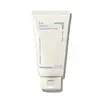What's inside
What's inside
 Key Ingredients
Key Ingredients

No key ingredients
 Benefits
Benefits

 Concerns
Concerns

 Ingredients Side-by-side
Ingredients Side-by-side

Houttuynia Cordata Flower/Leaf/Stem Water 33.32%
AntimicrobialGlycerin
HumectantSodium Cocoyl Glycinate
CleansingWater
Skin ConditioningSodium Lauroyl Glutamate
Disodium Cocoamphodiacetate
CleansingCoco-Glucoside
CleansingDecyl Glucoside
CleansingHectorite
AbsorbentSodium Chloride
Masking1,2-Hexanediol
Skin ConditioningBetaine Salicylate
AntimicrobialPotassium Benzoate
PreservativeHouttuynia Cordata Powder
Skin ConditioningPolyquaternium-67
Acrylates/C10-30 Alkyl Acrylate Crosspolymer
Emulsion StabilisingButylene Glycol
HumectantGardenia Florida Fruit Extract
Skin ConditioningDextrin
AbsorbentDisodium EDTA
Eucalyptus Globulus Leaf Oil
PerfumingEthylhexylglycerin
Skin ConditioningSodium Acetate
BufferingIsopropyl Alcohol
SolventPinus Palustris Leaf Extract
TonicUlmus Davidiana Root Extract
Skin ConditioningOenothera Biennis Flower Extract
AstringentPueraria Lobata Root Extract
HumectantPentylene Glycol
Skin ConditioningCapryloyl Salicylic Acid
ExfoliatingTocopherol
AntioxidantHydrolyzed Hyaluronic Acid
HumectantHyaluronic Acid
HumectantHydrolyzed Sodium Hyaluronate
Skin ConditioningSodium Hyaluronate
HumectantPotassium Hyaluronate
Skin ConditioningHydroxypropyltrimonium Hyaluronate
Sodium Hyaluronate Crosspolymer
HumectantSodium Acetylated Hyaluronate
HumectantQuercetin
AntioxidantHouttuynia Cordata Flower/Leaf/Stem Water 33.32%, Glycerin, Sodium Cocoyl Glycinate, Water, Sodium Lauroyl Glutamate, Disodium Cocoamphodiacetate, Coco-Glucoside, Decyl Glucoside, Hectorite, Sodium Chloride, 1,2-Hexanediol, Betaine Salicylate, Potassium Benzoate, Houttuynia Cordata Powder, Polyquaternium-67, Acrylates/C10-30 Alkyl Acrylate Crosspolymer, Butylene Glycol, Gardenia Florida Fruit Extract, Dextrin, Disodium EDTA, Eucalyptus Globulus Leaf Oil, Ethylhexylglycerin, Sodium Acetate, Isopropyl Alcohol, Pinus Palustris Leaf Extract, Ulmus Davidiana Root Extract, Oenothera Biennis Flower Extract, Pueraria Lobata Root Extract, Pentylene Glycol, Capryloyl Salicylic Acid, Tocopherol, Hydrolyzed Hyaluronic Acid, Hyaluronic Acid, Hydrolyzed Sodium Hyaluronate, Sodium Hyaluronate, Potassium Hyaluronate, Hydroxypropyltrimonium Hyaluronate, Sodium Hyaluronate Crosspolymer, Sodium Acetylated Hyaluronate, Quercetin
Water
Skin ConditioningGlycerin
HumectantMyristic Acid
CleansingLauric Acid
CleansingPotassium Hydroxide
BufferingStearic Acid
CleansingLauryl Hydroxysultaine
CleansingGlyceryl Stearate
EmollientGlycol Distearate
EmollientPalmitic Acid
EmollientSodium Chloride
MaskingCoco-Glucoside
CleansingRicinus Communis Seed Oil
MaskingDecyl Glucoside
CleansingSalix Alba Bark Extract
AstringentMenthol
MaskingSodium Metaphosphate
BufferingTorreya Nucifera Seed Oil
EmollientLimonene
PerfumingJuniperus Communis Fruit Oil
MaskingPinus Sylvestris Leaf Oil
MaskingJuniperus Virginiana Oil
MaskingLavandula Angustifolia Oil
MaskingCitrus Aurantifolia Oil
CleansingDextrin
AbsorbentTheobroma Cacao Extract
Skin ConditioningLinalool
PerfumingCitrus Limon Peel Oil
MaskingArtemisia Vulgaris Oil
PerfumingSalicylic Acid
MaskingPogostemon Cablin Leaf Oil
MaskingRosa Centifolia Flower Extract
AstringentCupressus Sempervirens Leaf/Nut/Stem Oil
EmollientWater, Glycerin, Myristic Acid, Lauric Acid, Potassium Hydroxide, Stearic Acid, Lauryl Hydroxysultaine, Glyceryl Stearate, Glycol Distearate, Palmitic Acid, Sodium Chloride, Coco-Glucoside, Ricinus Communis Seed Oil, Decyl Glucoside, Salix Alba Bark Extract, Menthol, Sodium Metaphosphate, Torreya Nucifera Seed Oil, Limonene, Juniperus Communis Fruit Oil, Pinus Sylvestris Leaf Oil, Juniperus Virginiana Oil, Lavandula Angustifolia Oil, Citrus Aurantifolia Oil, Dextrin, Theobroma Cacao Extract, Linalool, Citrus Limon Peel Oil, Artemisia Vulgaris Oil, Salicylic Acid, Pogostemon Cablin Leaf Oil, Rosa Centifolia Flower Extract, Cupressus Sempervirens Leaf/Nut/Stem Oil
 Reviews
Reviews

Ingredients Explained
These ingredients are found in both products.
Ingredients higher up in an ingredient list are typically present in a larger amount.
Coco-Glucoside is a surfactant, or a cleansing ingredient. It is made from glucose and coconut oil.
Surfactants help gather dirt, oil, and other pollutants from your skin to be rinsed away.
This ingredient is considered gentle and non-comedogenic. However, it may still be irritating for some.
Learn more about Coco-GlucosideDecyl Glucoside is a glucose-based surfactant and emulsion stabilizer. It is created by reacting glucose with the fatty acids from plants.
Surfactants help clean the skin by trapping oil, sebum, and dirt to be washed away. As an emulsion stabilizer, it stabilizes the ingredients in a product by preventing them from separating.
This ingredient is biodegradable and non-toxic. This ingredient is commonly found in baby shampoos.
Decyl Glucoside is sometimes used to stabilize the UV filter Tinosorb.
Learn more about Decyl GlucosideDextrin is used to thicken a product and helps bind ingredients together. It is created from starch and glycogen.
As an emulsifier, dextrin prevents ingredients from separating. This helps elongate a product's shelf life.
Studies show coating UV filters with dextrin prevents these ingredients from being absorbed. This helps UV ingredients last longer on the skin.
Learn more about DextrinGlycerin is already naturally found in your skin. It helps moisturize and protect your skin.
A study from 2016 found glycerin to be more effective as a humectant than AHAs and hyaluronic acid.
As a humectant, it helps the skin stay hydrated by pulling moisture to your skin. The low molecular weight of glycerin allows it to pull moisture into the deeper layers of your skin.
Hydrated skin improves your skin barrier; Your skin barrier helps protect against irritants and bacteria.
Glycerin has also been found to have antimicrobial and antiviral properties. Due to these properties, glycerin is often used in wound and burn treatments.
In cosmetics, glycerin is usually derived from plants such as soybean or palm. However, it can also be sourced from animals, such as tallow or animal fat.
This ingredient is organic, colorless, odorless, and non-toxic.
Glycerin is the name for this ingredient in American English. British English uses Glycerol/Glycerine.
Learn more about GlycerinChances are, you eat sodium chloride every day. Sodium Chloride is also known as table salt.
This ingredient has many purposes in skincare: thickener, emulsifier, and exfoliator.
You'll most likely find this ingredient in cleansers where it is used to create a gel-like texture. As an emulsifier, it also prevents ingredients from separating.
There is much debate on whether this ingredient is comedogenic. The short answer - comedogenic ratings don't tell the whole story. Learn more about comegodenic ratings here.
The concensus about this ingredient causing acne seems to be divided. Research is needed to understand if this ingredient does cause acne.
Scrubs may use salt as the primary exfoliating ingredient.
Learn more about Sodium ChlorideWater. It's the most common cosmetic ingredient of all. You'll usually see it at the top of ingredient lists, meaning that it makes up the largest part of the product.
So why is it so popular? Water most often acts as a solvent - this means that it helps dissolve other ingredients into the formulation.
You'll also recognize water as that liquid we all need to stay alive. If you see this, drink a glass of water. Stay hydrated!
Learn more about Water